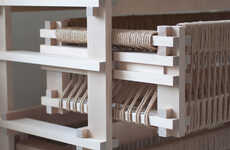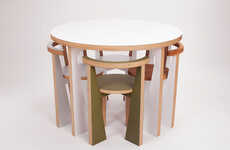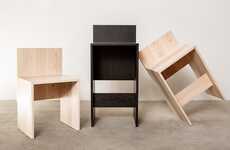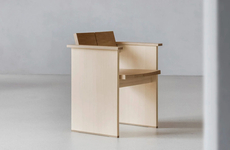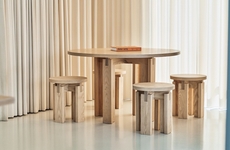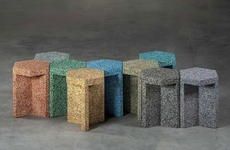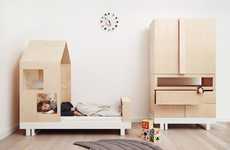
Wabu Makes Unique Furniture with Up to Three Pieces of Wood
Wabu produces handcrafted reclaimed wood furniture to promote sustainability and uniqueness. The company's name captures the essence of the idea, as it is a clever acronym for 'Wood After Being Used.'
The design process starts with a scavenger hunt for abandoned wood. The first limited collection is being made with 2,000 doors from South East Asia. These 100-year-old finds feature quality elm wood, which is tough and durable, and Wabu will lightly treat the wood to highlight and bring out its lost character. Thereafter, it will be crafted into tables, magazine stands, chairs and benches that carry an antique authenticity. Each piece is designed with no more than three solid pieces and less than four screws, making the reclaimed wood furniture easy to assemble.
The design process starts with a scavenger hunt for abandoned wood. The first limited collection is being made with 2,000 doors from South East Asia. These 100-year-old finds feature quality elm wood, which is tough and durable, and Wabu will lightly treat the wood to highlight and bring out its lost character. Thereafter, it will be crafted into tables, magazine stands, chairs and benches that carry an antique authenticity. Each piece is designed with no more than three solid pieces and less than four screws, making the reclaimed wood furniture easy to assemble.
Trend Themes
1. Sustainable Furniture - Wabu's use of reclaimed wood and emphasis on sustainability presents opportunities for sustainable furniture production.
2. Vintage/upcycled Furniture - Wabu's use of 100-year-old reclaimed wood presents opportunities for unique and vintage-style furniture pieces.
3. Simplicity in Design - Wabu's practice of designing furniture with a limited number of pieces and screws presents opportunities for more efficient and cost-effective furniture production.
Industry Implications
1. Furniture Manufacturing - Wabu's use of reclaimed wood and unique design process presents opportunities for furniture manufacturers to incorporate sustainable and vintage elements into their production processes.
2. Home Decor and Furnishings - Wabu's handcrafted and unique furniture pieces present opportunities for home decor and furnishings companies to diversify their product offerings and appeal to eco-conscious consumers.
3. Environmental Conservation - Wabu's emphasis on sustainability and use of reclaimed materials presents opportunities for environmental conservation efforts and initiatives promoting responsible consumption and production.
5
Score
Popularity
Activity
Freshness

